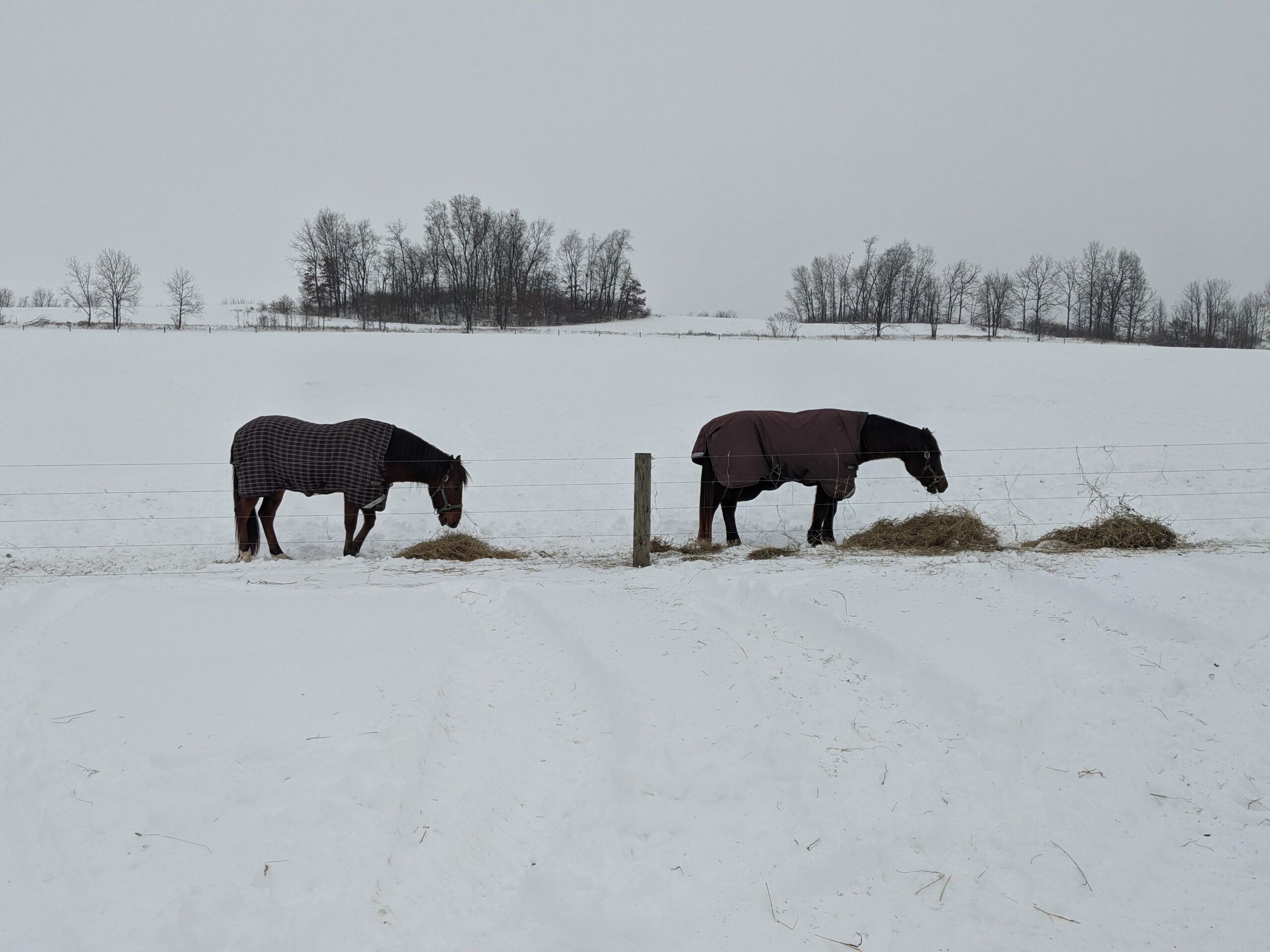Let’s face it, winter can be harsh. Rain and snow are not friends to pastures, and the cold weather can make food supplies scarce. In particular, our horse friends are prone to winter weather stressors and require slight adjustments to their feeding and management practices to keep up with their higher calorie demands. Which is exactly what we’re going to discuss today. Why is it necessary to provide horses with forage products in the winter? Let’s dive in!
ENERGY IS NEEDED TO STAY WARM:
As the temperatures begin to fall in the early winter months, horses require additional energy to stay warm. This additional energy requirement usually calls for changes or alterations in feeding practices. On average, it has been estimated that the average horse will need about 25% higher energy intake during the coldest winter months. Also to note, horses over 20 years old have reduced tolerance to weather extremes and will need higher energy intakes than young or middle-aged horses housed under the same conditions.
ALTERNATIVE FEEDING & SUPPLEMENTS WILL BE NEEDED:
During winter, temperatures typically fall below what is necessary for pasture grass to grow. Pastures become rapidly depleted of natural forage and horses must increasingly rely on their owners to provide them with a nutritionally adequate diet. Several key factors must be addressed to properly feed a horse during the winter months. These factors are:
- Water
Water should always be the first consideration in the diet of any horse. Without adequate water intake horses will not survive. An adult horse (1000 lbs.) in a cool, comfortable environment that is not working, or lactating, requires a minimum of 7 - 10 gallons of fresh clean water per day. Water that has frozen or is near freezing will result in decreased intake. Similarly, horses that must eat snow as their only water source, will not eat enough snow to completely satisfy their water requirement. This decreased water intake can result in digestive upset or "colic" that is associated with feed material becoming impacted (stuck) in the digestive system. So, heated water troughs and tactics to keep water from freezing are very important this time of year.
- Fiber
Adequate fiber intake is the next consideration in feeding horses during the winter season. It is recommended that horses receive a minimum of 1.5% of their body weight in dry hay per day. For a 1000 lb. horse, this equates to 15 lbs. of hay per day. A frequent problem with horses during the winter months is weight loss. This can happen if horses are not being fed enough hay and/or grain or they simply cannot consume enough calories to maintain their condition. Better quality hays are typically higher calorie hays such as alfalfa, compared to grass hay.
- Essential Supplements
Essential supplements providing adequate trace minerals and vitamins are important to maintain adequate immune function and health throughout the winter months. Kalmbach’s supplement blocks can provide your horse with those vitamins and trace minerals in the pasture that your horses need in the winter. Designed to supply nutrients that are typically low or imbalanced in grass or mixed forages. These blocks provide generous levels of vitamins which can be low in winter forages.
As with any diet, be sure to consult with your veterinarian or contact us at Martin’s Feed Mill to speak with one of our feed specialists to make recommendations for your horse’s nutrient needs and feeding program. Check out our website to view the products we have in stock.
